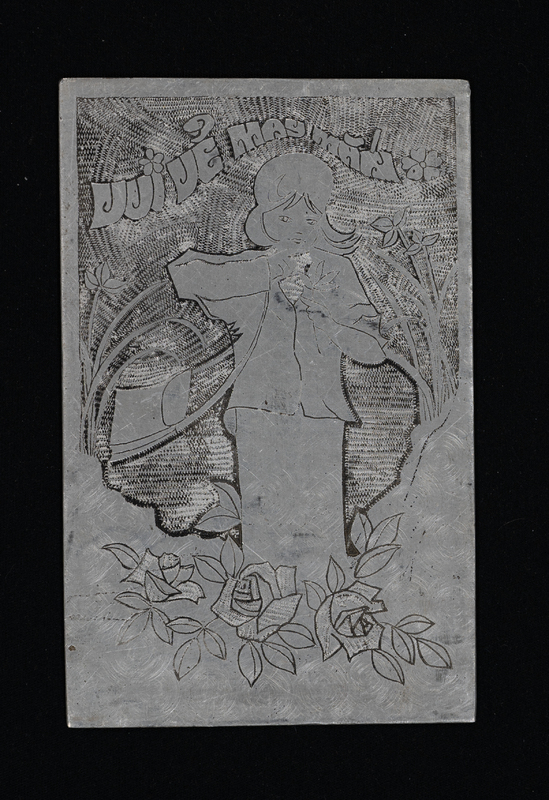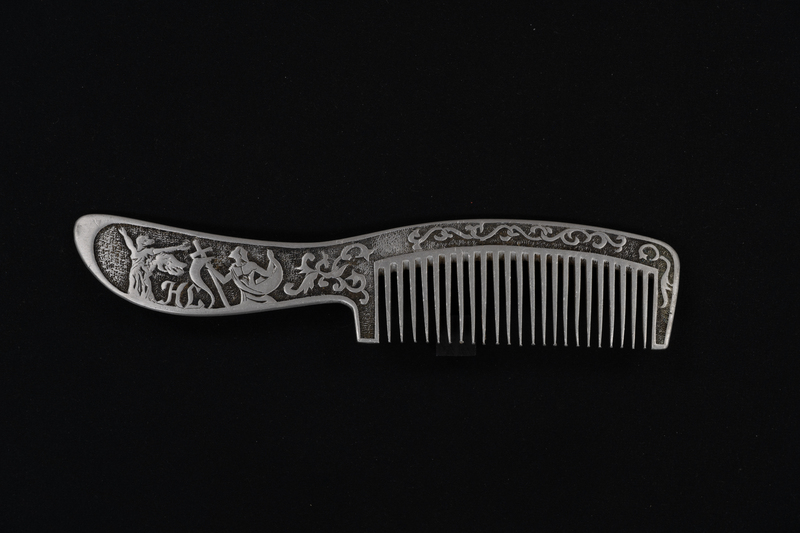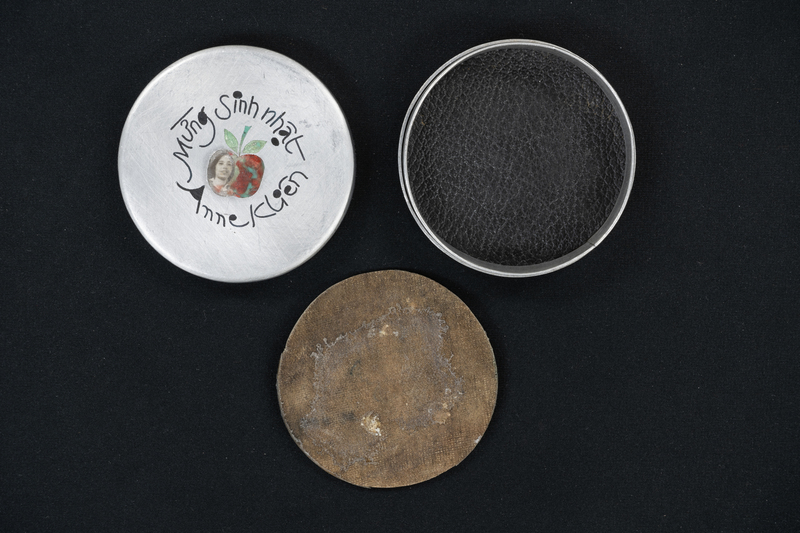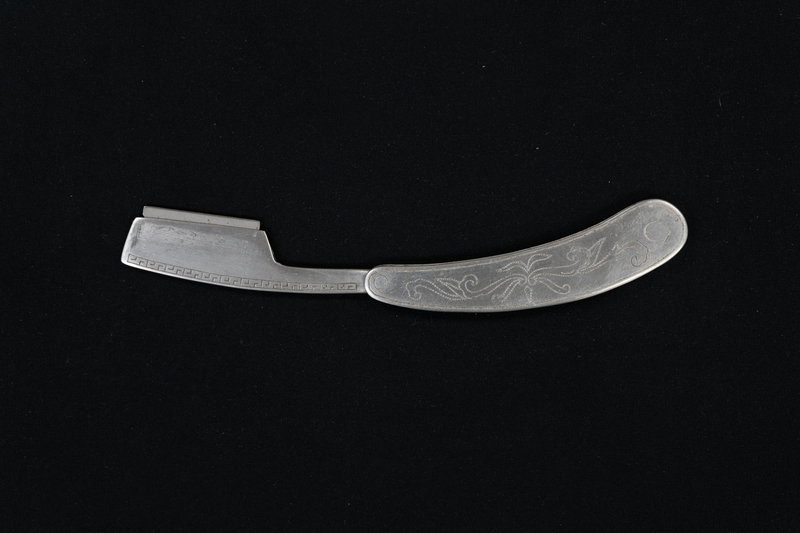About the exhibit
When talking about the hardships refugees endure, we think of the lack of food, shelter and safety. These basic needs often take precedence over what refugees go through and what they need support of, mentally. Humanitarian organizations or host countries lack the resources for refugee mental health issues, since the issue is often overlooked. But, the well being of a person’s mind is just as important as his/her physical well being.
This exhibit aims to shed light on the mental health struggles and the resilience of refugees by drawing parallel comparisons between historical and contemporary refugee experiences. Through the lens of artifacts from the Vietnamese Heritage Museum to artifacts from the Greco-Roman period, we explore the challenges and hardships these refugees faced and how they reacted to these tribulations. In the hope of gaining some insights on refugees’ experiences and raising awareness of the importance of mental health and supportive services, let’s explore this exhibit.
Two themes: Mental Health Struggles and Resilience
This exhibit seeks to tell two themes: the mental health struggles that refugees face, and how they demonstrated strength and resilience, through the narratives of stories behind the artifacts.
Artifacts from the Vietnamese Heritage Museum
All 4 Vietnamese artifacts belong to Mr. Bắc Phong Từ Võ Hạnh, and were donated to Vietnamese Heritage Museum Collections. Mr. Bắc Phong Từ Võ Hạnh was in concentration camps after the end of the Vietnam war, in 1975. Since vietnam was back under communist control, many officers of South vietnam were sent to prisons, including Mr. Bắc Phong Từ Võ Hạnh. We will dive into Mr. Bắc Phong Từ Võ Hạnh’s narratives of his artifacts later.
Theme 1: Mental Health Struggles
Europe Painting “Dido and Aeneas”
Dido, the Queen of Carthage, fled her native Tyre after her brother Pygmalion murdered her husband. Leading a group of followers, she founded the new city of Carthage, becoming a prominent leader of refugees and displaced people. Similarly, Aeneas, a Trojan prince, escaped the destruction of Troy with a group of survivors, including his father Anchises and his son Ascanius. Driven by a prophecy, they embarked on a journey to find a new home.
The story of Dido and Aeneas, as told in Virgil's Aeneid, prominently features themes of exile and refuge, embodying the refugee experience through its characters and narrative. This tale also delves into the emotional and psychological toll of exile. Dido falls in love with Aeneas, but his duty to continue his journey leads to her heartbreak and eventual suicide, highlighting the personal sacrifices and tragedies often faced by refugees.
This tale delves into the emotional toll of exile. Dido's love for Aeneas and her subsequent heartbreak reflect the emotional turmoil faced by refugees. Aeneas’s sense of duty to continue his journey, despite his feelings for Dido, underscores the often conflicting demands and difficult choices that refugees must navigate. Also, Dido's eventual suicide highlights the severe mental health struggles that can arise from the loss and desperation that accompany the refugee experience. In Dido and Aeneas, Dido said: “for you I braved the Libyan people’s hate; For you, the tyrants of Numidia spurned; The Tyrians I have angered. For your sake My honor has been lost, and that fair name I held in earlier days, by which alone I was ascending to the very stars.” Refugees often endure profound losses, leaving behind loved ones, homes, and familiar environments, which can lead to a deep sense of grief and longing. By reflecting on the story of Dido and Aeneas, we gain insight into the refugee experience, emphasizing the need for comprehensive mental health support.
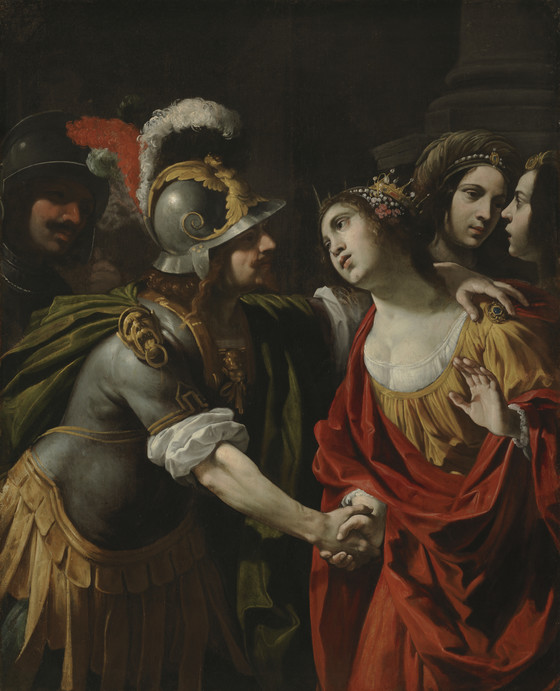
Mixing Vessel
In the tragic story of Medea. After betraying her own father for her husband, Medea fled with her husband to Greece. Medea, a foreign princess from Colchis, was viewed as an outsider in Greek society. Her unfamiliarity with the Greek society and culture, led her to become isolated and resentful. The isolation, and separation from her own family troubled Medea. After discovering her husband’s intention of marrying another woman, she decided to kill everything she loved, and committed a terrible crime. The isolation, and separation from her own family troubled Medea.
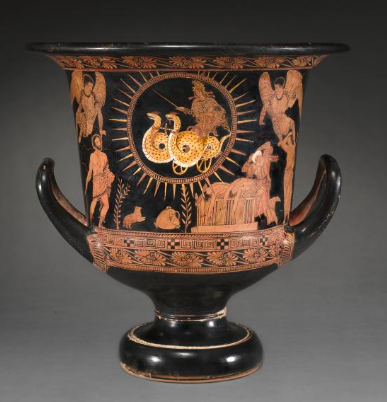
Handmade Comb
Handmade by Mr. Bắc Phong Từ Võ Hạnh while he was in the northern detention camps of Vietnam. Despite harsh conditions and strict surveillance, he managed to create this comb for his beloved wife.
Mr. Bắc Phong Từ Võ Hạnh shared his story: Once sent to remote camps, life in prison was filled with harsh treatment and constant monitoring. Finding materials for crafting was nearly impossible. After several attempts, he exchanged his lunch for a piece of aluminum. To keep it safe, he hid it at the edge of the forest and used any spare time to make the comb for his wife, who was struggling as a teacher to raise their children.With no proper tools, he used makeshift items from old fence lines and polished the comb with forest leaves and sandy soil. He carved religious images, his wife’s name "Anne," and their initials on both sides of the comb.After two months of diligent work, he hoped the comb would reach his wife's hands as a message of love and hope. “I miss you tremendously, darling. This comb is only for display, not for use because it is very sharp and could hurt you.”
Mr. Bắc Phong Từ Võ Hạnh was eventually released, and upon returning home, he found the comb displayed in their house, a symbol of love, hope, and the enduring bond with his wife.
Without proper tools, he made tools from pieces of old fence line and sanded combs with leaves and sand from the forest. These details demonstrate his creativity and resilience in the face of extreme difficulties. On both sides of the comb, he carved religious designs, his wife's name "Anne" and their initials. These carvings express not only his deep love for his wife, but also his faith and hope for his family in the face of adversity.
Mr. Bắc Phong Từ Võ Hạnh put his heart and soul into making this gift, hoping to convey his thoughts and encouragement to his wife. It is not only an expression of love for his wife, but also a reflection of his own perseverance and faith. In the face of adversity, he chose to create rather than give up. This spirit was highly consistent with the message he wished to convey: "Darling, I miss you so much. This comb is just for display, not for combing your hair, because it is very sharp and might hurt you." This statement not only conveys his care, but also reflects his concern for his wife's well-being.
The story of Bắc Phong Từ Võ Hạnh resonates deeply with the fate of King Oedipus. Despite his best efforts to escape his prophesied fate, Oedipus ultimately falls into the trap of destiny. Refugees are also unable to control the course of their lives, and despite their efforts to fight against fate, they are always struggling with it.Bắc Phong Từ Võ Hạnh insisted on making combs for his family in spite of his extreme hardship, and this kind of effort and perseverance to fight against destiny is similar to Oedipus the Great's wisdom and courage.
Eventually, when he returned home, he found the comb on display, which not only symbolized the love, hope, and enduring bond between their family, but also a testament to the love that he preserved through resilience and creativity in the face of extreme adversity. The comb is not just a physical object, but a touching story of family bonds, resilience and hope. His family was his greatest spiritual support and source of motivation during his plight, and their love and thoughts sustained him through the toughest of times.
Two-handled jar
The story of Oedipus solving the riddle of the Sphinx symbolizes the triumph of wisdom and courage, which is particularly important for refugees. For refugees, moral support is crucial. The tale also highlights the complex intertwining of family relationships and destinies. During displacement, families serve as emotional anchors and spiritual support. The care and support from family members provide refugees with the strength to overcome their plight. However, the processes of family separation and reunion can cause significant psychological pressure and suffering. The Oedipus and Sphinx vase painting not only demonstrates the triumph of wisdom but also reflects the weakness and resilience of families in the face of fate.
The story of Oedipus solving the riddle of the Sphinx symbolizes the triumph of wisdom and courage, a moral support that is particularly important for refugees. Oedipus faces not only the challenge of solving the riddle, but also the challenge of destiny. Solving the riddle of the Sphinx not only saved the city of Thebes, but also symbolized that even the greatest difficulties can be overcome in the face of human wisdom and courage.
In terms of the concept of family, the story of Oedipus highlights the complexity of intertwined family relationships and destinies. In displacement, a refugee's family is often their emotional anchor and spiritual support. Oedipus solves the riddle through ingenuity and in the process demonstrates a sense of responsibility to his family and his people. This sense of responsibility and love is particularly important in refugee families, where through the support and care of family members, refugees can find the strength to overcome their plight.
However, the process of family separation and reunion can also bring great psychological stress and pain. Oedipus discovers the tragedy of his family after solving the riddle, bringing great pain and remorse. This also reflects the psychological trauma and stress experienced by refugee families in the process of separation and reunion in real life. Nonetheless, as the story of Oedipus shows, wisdom and courage can bring hope and redemption when human beings face the challenges of destiny.
Refugees have no control over the trajectory of their lives, just like King Oedipus, who, despite his efforts to fight fate, always struggles with it. The bottle painting depicting Oedipus and the Sphinx not only demonstrates the triumph of wisdom, but also reflects the vulnerability and resilience of families in the face of fate. It reminds us that even in the darkest moments, wisdom and courage can still bring hope and redemption. Through family support and working together, refugees can find ways to overcome adversity and rebuild their lives. This story and the bottle painting provide us with insightful reflections that inspire us to remain resilient and hopeful in the face of adversity. Family is not only an emotional pillar for the refugees in the midst of turmoil, but also an important source of motivation for them to persevere and fight in the face of adversity.
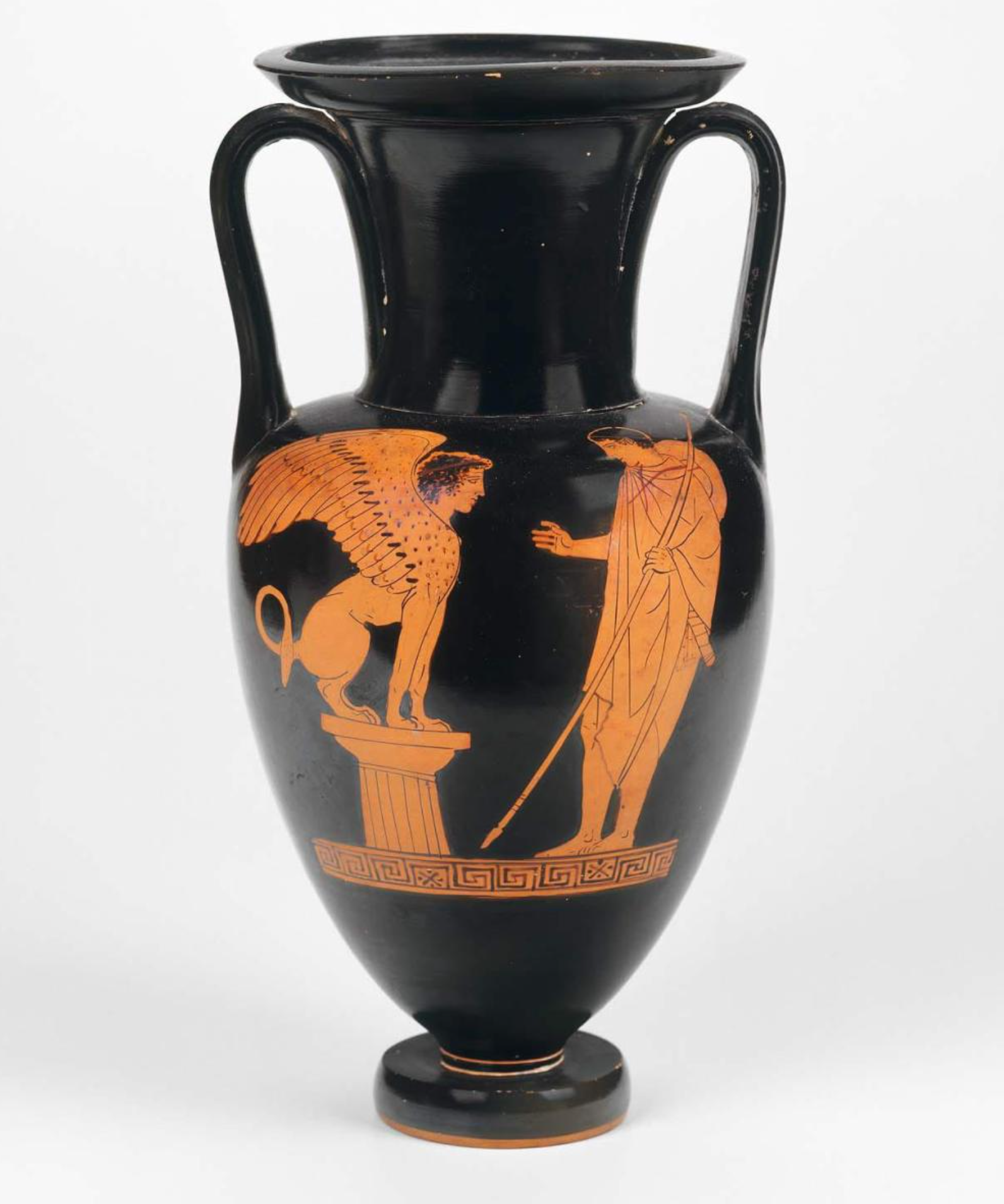
Theme 2: Resilience
Jewelry box
From Bac Phong Tu Vo Hanh, the jewelry box is a round aluminum object with a diameter of 7 cm, handmade in Long Giao Prison, Long Khanh, Vietnam. It is engraved with the words "Mừng Sinh Nhật Anne K Liên" (Happy Birthday Anne K Lien), an apple, and a woman's face, symbolizing personal connection and love. The inside lid features the letters R E N, and it is padded with round leather discs. This jewelry box, handmade for the creator's wife, serves as a personal and sentimental gift amidst a tumultuous time.
The engraving and personalization of the box reflect deep emotional ties and the human need for connection and memory, even in the face of displacement and hardship. The creation of such a detailed and personal object in a prison setting speaks to the resilience and ingenuity of individuals under duress. The inscriptions and choice of symbols (apple and woman's face) indicate a blending of personal and cultural identities, maintaining a connection to loved ones and heritage.
The jewelry box is no ordinary object. Every detail was infused with love and longing, from the carefully chosen symbols—an apple and a woman's face—to the heartfelt inscriptions on its lids. These elements not only personalized the gift but also served as a testament to the enduring human spirit. The creation of the jewelry box showcases Bac Phong To’s resilience. His ability to maintain a sense of identity and connection through the act of creating something so thoughtful in a prison setting speaks volumes about the strength in the human. This artifact, therefore, serves as a symbol of unyielded will and love in the face of adversity.
Aluminum Birthday Card
Rectnagular aluminum plate, with hand-engraved with Vietnamese. The item was crafted by the creator while in prison. The plate is meant to be a birthday gift for the creator's daughter. It was eventually delivered to the creator's daughter by a prison visitor.
Handmade by Mr. Bắc Phong Từ Võ Hạnh, while he was in prison. Mr. Bắc Phong Từ Võ Hạnh shared his story about this item. He said he suddenly remembered that it was close to his daughter’s birthday and wanted to make her a gift. He wanted to trade his lunch for his friend’s aluminum piece. But his friend, knowing how valuable a piece of aluminum was in that camp, said to him: “Just take this piece and start carving it for your daughter. As a gift from me, don’t try to exchange anything. Without this cup of rice, will you be able to survive to see tomorrow?”. Mr. Bắc Phong Từ later made this gift for his daughter and it was delivered to her by a prison visitor.
Mr. Bắc Phong Từ Võ Hạnh did not want to give up the hope of returning home; “Because of you, I could not die. I undoubtedly would return home to teach you the things that your mother was unable to because of our family’s deprivation and struggles. And only people in the same situation could understand each other through tribulations. Darling, if only you knew how touched I was when my friend not only gave me the piece of aluminum – which was more precious than gold at that time” said to his daughter.
Mr. Bắc Phong Từ Võ Hạnh, was released eventually, and when he returned home, he surprising found this card in his home, the symbol of love, hope and friendship in that prison.
Razor
As Bắc Phong Từ Võ Hạnh was subjected to forced labor, he and other prisoners were forced to cut down bamboo and trees to receive rations of food. Despite being a martial arts master and being able to assist other prisoners in doing their labor, his legs started to become numb and eventually he could no longer stand on his own. This was accompanied with malnutrition, and any effort to improve his condition was ineffective.
At this time, he claimed that being a cripple was worse than death, and if he were to die, he wanted to die "meaningfully, beautifully, and heroically." He crafted a razor which was meant to look like it was only used for shaving, and he planned to use it to commit suicide on Vietnam's National Day of Mourning. However, one night he was unable to fall asleep and remembered his wife and children. The thought of his wife struggling to care for his children pained him, which convinced him that he had to live.
The razor holds memories during the imprisonment of Bắc Phong Từ Võ Hạnh. The shift in perception of the razor from a tool for ending his life to a symbol of his will to live shows the resilience of Vietnamese prisoners and refugees during dark times.
Io
Io was the daughter of Inachus, one of the river gods, and a priestess of Hera. She caught the eye of Zeus, who fell in love with her. To hide her from Hera, Zeus turned Io into a cow, but the deception failed, so Hera sent a gadfly to sting Io continuously, driving her to wander the world without rest. Io eventually crossed the path between the Propontis and the Black Sea, where she met Prometheus, who told Io that she would one day be restored to human form. Io eventually crossed the Ionian Sea to Egypt, where Zeus restored her to human form.
The story of Io is marked by her suffering and eventual divine transformation, and this can be related to the experiences of Vietnamese refugees and their mental health resilience. Just as Io was forced to wander and endure hardships due to circumstances beyond her control, Vietnamese refugees experienced displacement and emotional distress due to the Vietnam War and their journey to find safety and stability.
Io's eventual transformation back into human form and the birth of her son symbolize hope, recovery, and the potential for a new beginning. Similarly, many Vietnamese refugees, through resilience and determination, managed to rebuild their lives, adapt to new environments, and thrive despite their traumatic pasts. This resilience is often supported by strong community bonds, cultural identity, and the ability to find meaning and purpose in their experiences.
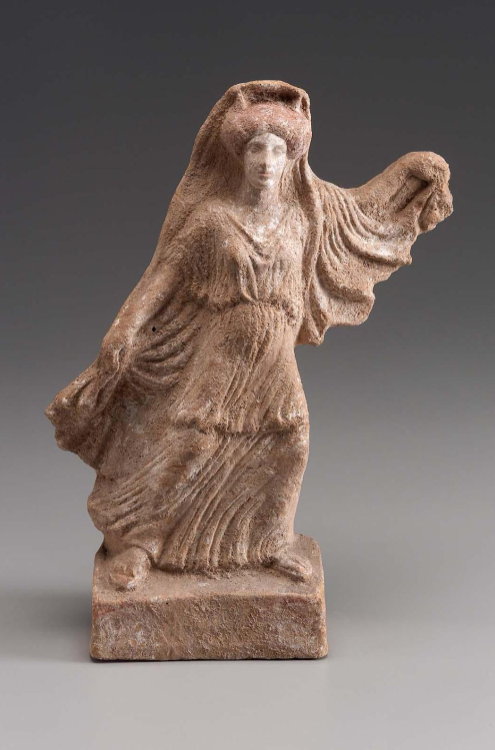
Closing Remarks
The exploration of artifacts and stories from both Vietnamese refugees and Greco-Roman mythology offers a profound understanding of the intersection between refugee experiences that emphasize mental health and resilience. These diverse sources collectively highlight the emotional resilience, deep connections to family, and the psychological struggles faced by displaced individuals.The Vietnamese artifacts, such as the jewelry box, aluminum comb, razor, and birthday card, illustrate the significance of personal connections and strength under such circumstances. Parallel to these personal artifacts, the Greco-Roman narratives of Dido and Aeneas, Oedipus, and Medea reflect broader themes of exile, family, and mental health. Together, these sources offer a comprehensive view of how refugees, across different cultures and eras, confront and manage their challenges with their resilience. We hope the narratives of these objects can serve as a call to action to advocate for more refugee community buidling, and to allocate more resources towards supporting refugee mental health issues.
